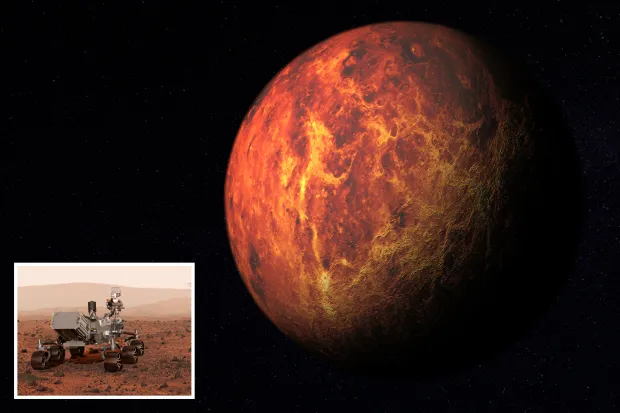According to a recent study published in Nature Synthesis, an AI-powered robot chemist could potentially solve the challenge of providing oxygen to humans on Mars. The study found that compared to humans, an AI robot could quickly determine how to produce vital oxygen for survival. The reason behind this is the vast number of potential oxygen evolution reaction (OER) catalysts on Mars, which would present humans with too many possibilities to navigate. Additionally, the time delay in communication between Earth and Mars, ranging up to 20 minutes, would further complicate problem-solving. Oxygen supply is crucial for any human activity on Mars, as it is essential for rocket propellants and life support systems. The authors propose that AI robots could handle the task of oxygen supply independently, bypassing potential challenges faced by humans on the planet. The study outlines a process where AI robots autonomously perform tasks such as Martian ore pretreatment, catalyst synthesis, characterization, testing, and the search for the optimal catalyst formula. The study suggests that, instead of the trial-and-error approach that would take a human a lifetime, AI robots could solve the puzzle within six weeks. This research indicates that robot chemistry has been advancing in recent years, and the same technology could be applied on other planets to facilitate human exploration. The authors believe that their study demonstrates the potential of an advanced AI chemist to autonomously synthesize OER catalysts on Mars using local resources. They suggest that this protocol and system could be utilized for automated material discovery and chemical synthesis in the occupation and exploration of extraterrestrial planets.
Recent Posts
- Unmasking Sexual Corruption: The Disturbing Truth Behind the Cannes Festival Exposed by American Media
- Supreme Court Upholds Revocation of Jammu and Kashmir’s Special Status, Orders State Restoration and Elections
- Muslim American Leaders Rally Against Biden’s Stance on Israel, Threatening Electoral Support
- UK Signs New Treaty with Rwanda to Revive Controversial Migrant Plan
- Iran Criticizes Security Council’s Failure in Ensuring Peace, Calls for Democratic Reform
Most Used Categories
- WORLD (8)
- United states (1)
- England (1)
- SCIENCE & TECH (5)
- VIDEO (4)
- OPINION (3)
- ECONOMY & BUSINESS (2)
- CULTURE & ARTS (2)

